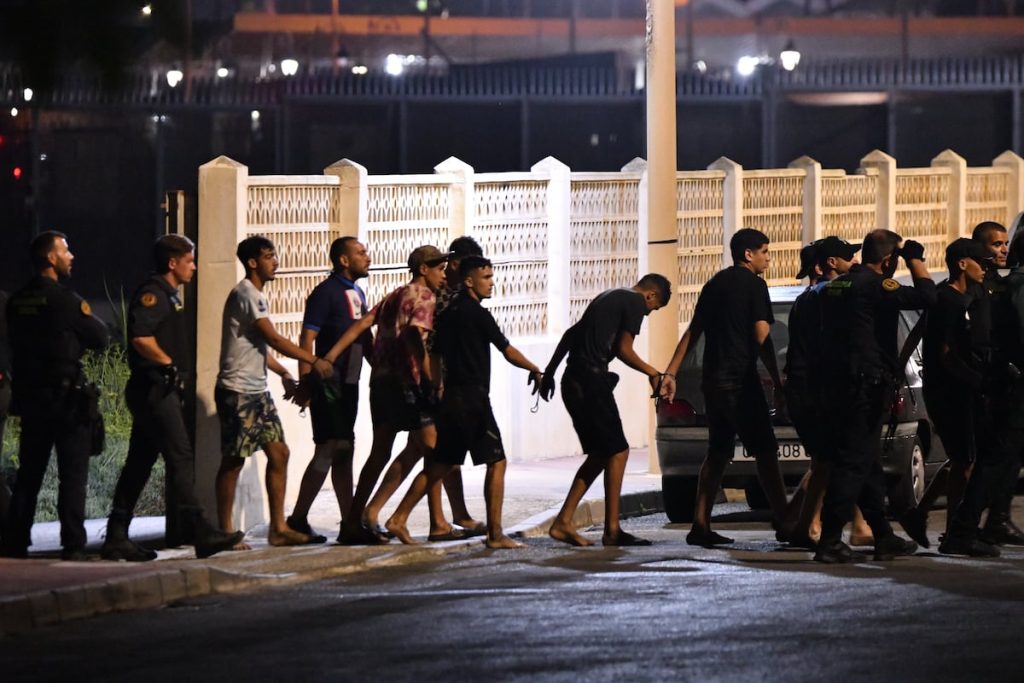The screams, races, and sirens marked the early hours of Monday in Ceuta, as around 200 immigrants attempted to swim into the city, prompting the intervention of the Guardia Civil, Maritime Rescue, the Red Cross, and local authorities. This was another episode of what locals refer to as “migratory pressure”, but the increasing number of people attempting to cross the border into Ceuta has raised concerns among authorities who are closely monitoring the situation. Morocco’s efforts to contain the daily influx of migrants are commendable, but additional collaboration is needed to expedite the repatriation process.
Since Friday, there have been nearly 600 attempts to enter Ceuta, either by swimming or through the border fence, with an unknown number of successful crossings. This surge in attempts is particularly significant considering that up to July 31st, 543 migrants had entered Ceuta by land or sea, according to official figures from the Ministry of the Interior. The actual numbers could be higher due to incomplete data from the Moroccan side of the border. The influx is straining the resources of Ceuta, with both local and national authorities facing challenges in providing adequate support.
The arrival of minors presents a particularly complex situation, as they are supposed to be accommodated and not immediately repatriated. Since Friday, around fifty minors have entered Ceuta and must be cared for by the city. Ceuta, like the Canary Islands, is struggling to cope with the influx of migrant children and adolescents, leading to severe overcrowding in youth centers. Currently, nearly 400 minors are being accommodated in a facility designed for 130, representing an occupancy rate of 300%. To alleviate the situation, an industrial warehouse has been repurposed to provide temporary accommodation, although authorities emphasize that conditions are better than during previous emergencies.
In response to the crisis, Ceuta’s President, Juan Jesús Vivas, expressed support for amending the immigration law to require all autonomous communities to accommodate migrant minors arriving in extrapeninsular territories like Ceuta, Melilla, and the Canary Islands. However, this proposal was rejected by the Spanish Congress due to opposition from the PP, Junts, and Vox parties. The situation at the Temporary Stay Center for Immigrants (CETI) in Ceuta is also critical, with the facility exceeding its capacity by accommodating more than a hundred individuals. The CETI serves as a temporary shelter for migrants and refugees until they can be transferred to mainland Spain.
The ongoing challenges faced by Ceuta highlight the need for coordinated efforts at both the national and international levels to address the root causes of migration and provide sustainable solutions. The city’s authorities are working to manage the current crisis while advocating for greater support from the Spanish government and international partners. As the situation continues to evolve, it is crucial to prioritize the well-being and rights of migrants and ensure their dignified treatment and protection. Despite the immense challenges faced by Ceuta, the resilience and solidarity of its residents and authorities are essential in navigating this complex and evolving migratory landscape.


